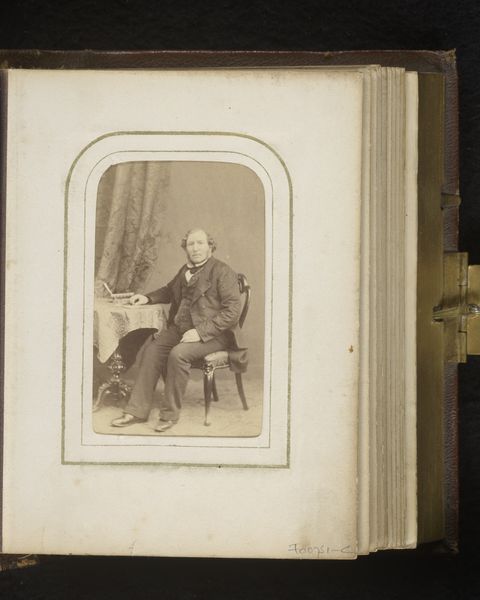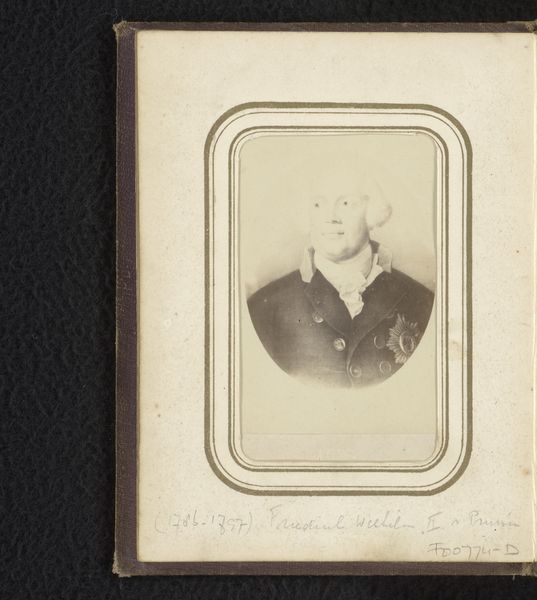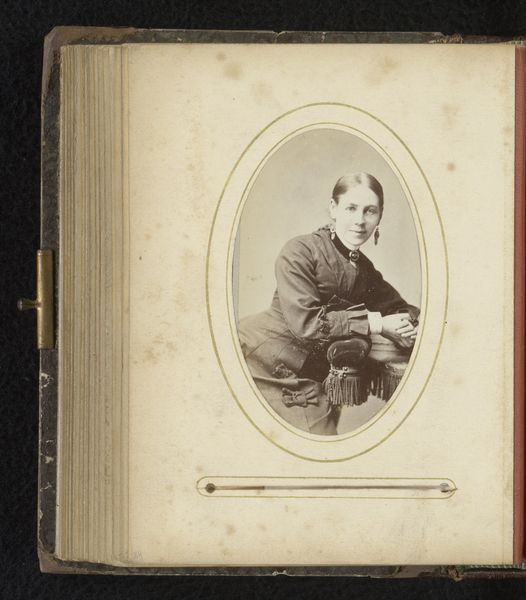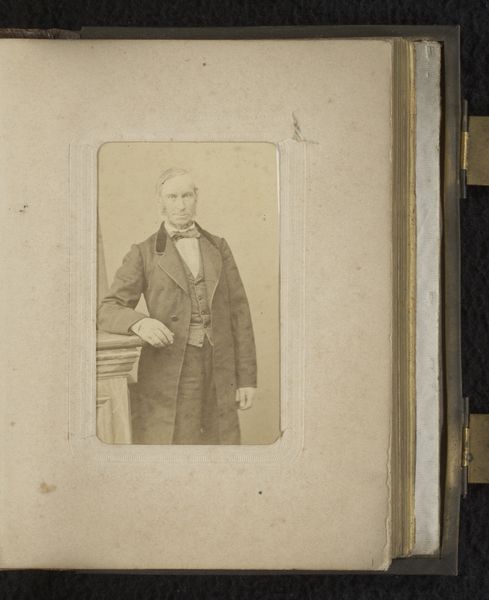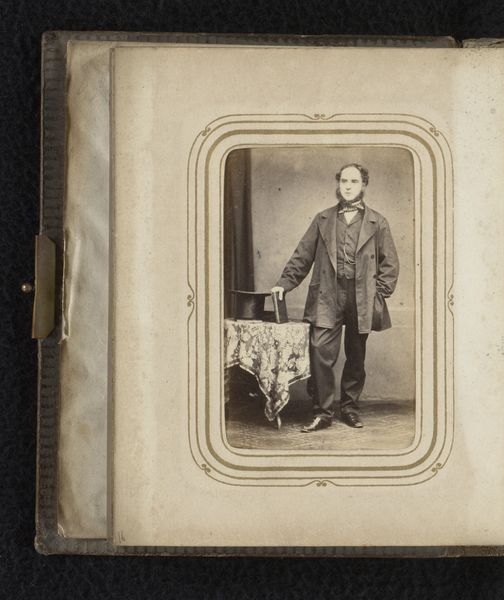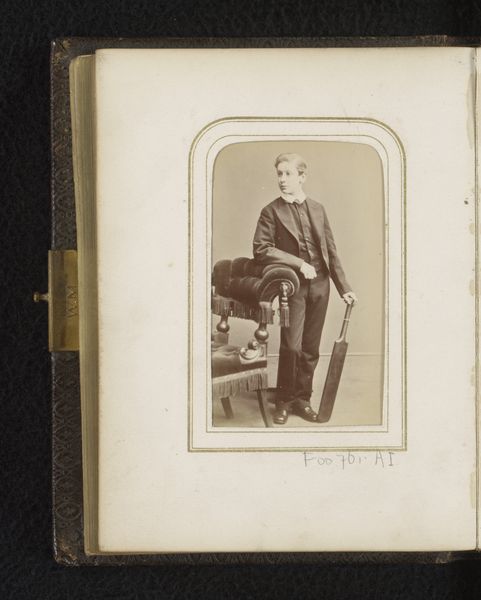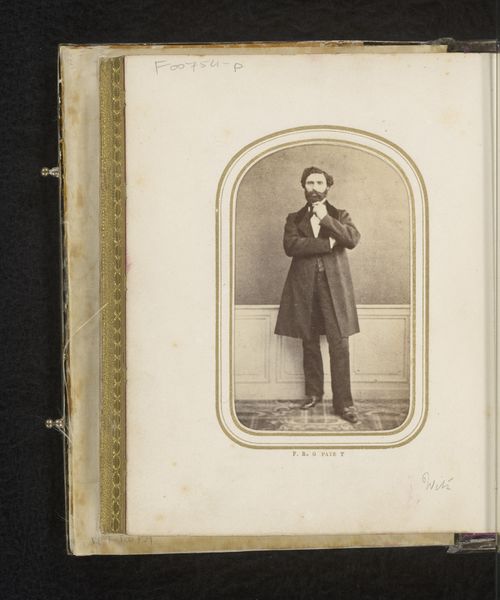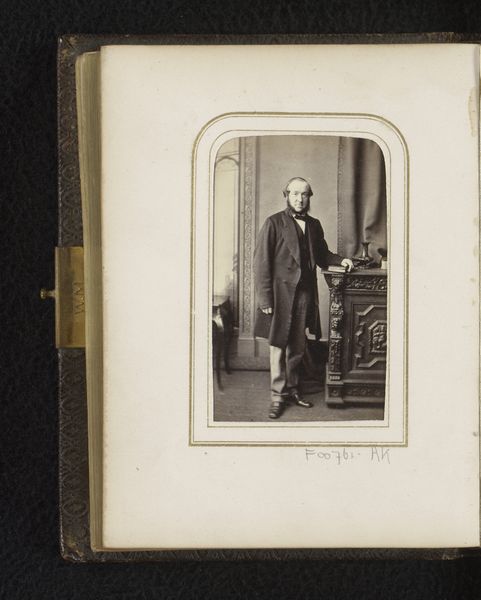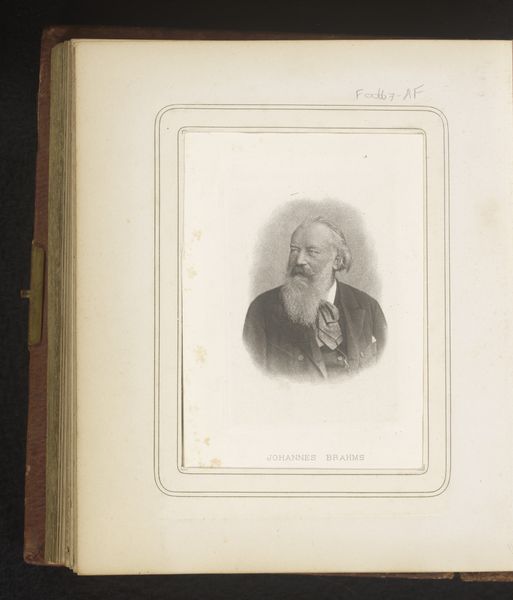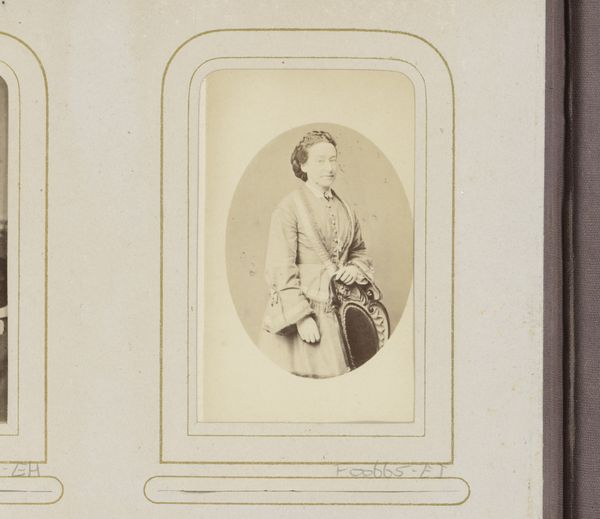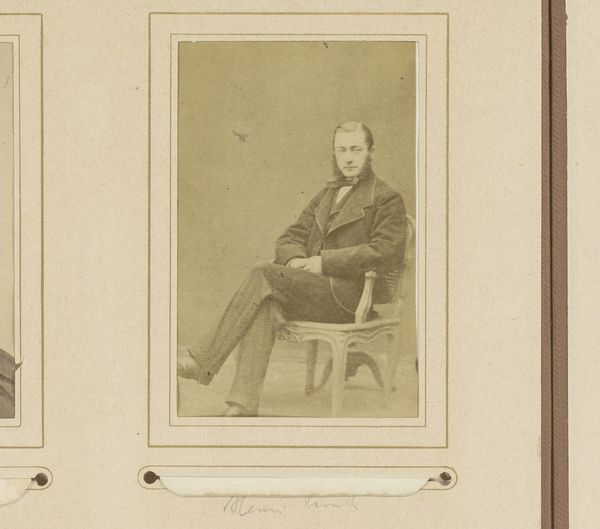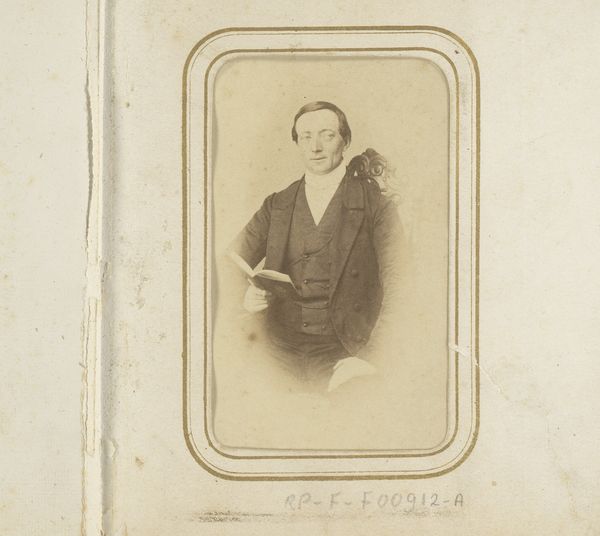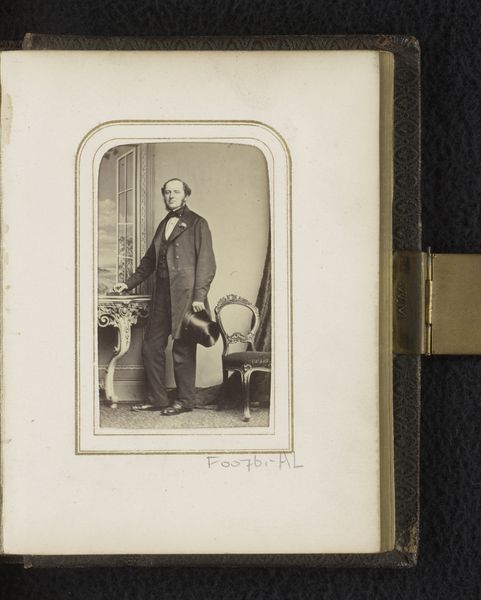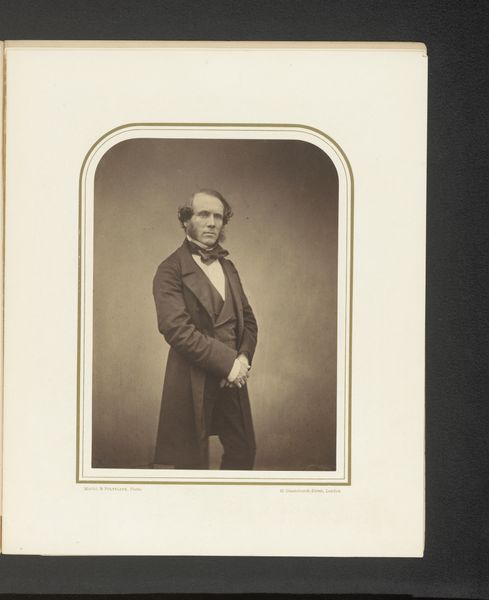
photography, gelatin-silver-print
#
portrait
#
photography
#
gelatin-silver-print
#
19th century
Dimensions: height 83 mm, width 52 mm
Copyright: Rijks Museum: Open Domain
Editor: Here we have an interesting photograph, a gelatin silver print dating back to sometime between 1860 and 1880. It's a portrait of Ferdinand von Beust. It’s got a slightly austere mood to it, a formal almost confrontational pose. How do you interpret this work? Curator: Well, this image, like many portraits of the period, is about power and social identity. The stiff pose, the formal attire—they're not just reflections of fashion. Consider Beust's biography, he was a Saxon and later Austro-Hungarian statesman during a period of intense nationalism and shifting European power dynamics. What message do you think he intended to convey through this image? Editor: Confidence and authority? Maybe even a warning? Curator: Precisely. Photography in the 19th century was often used to project a carefully constructed image of the self, especially among those in positions of power. This portrait is less about capturing a likeness and more about cementing a certain image in the collective consciousness, one that reinforced existing power structures. And, of course, think about who had access to photography and who didn't. Editor: That makes a lot of sense. I was focused on the visual, but you've helped me see how portraits like this are also deeply intertwined with political and social power. Curator: Absolutely. Recognizing these historical contexts allows us to understand how artworks participate in broader cultural conversations around identity and control. These aren't passive images; they are active participants. Editor: I will definitely be thinking about that more. Thanks. Curator: My pleasure.
Comments
No comments
Be the first to comment and join the conversation on the ultimate creative platform.
